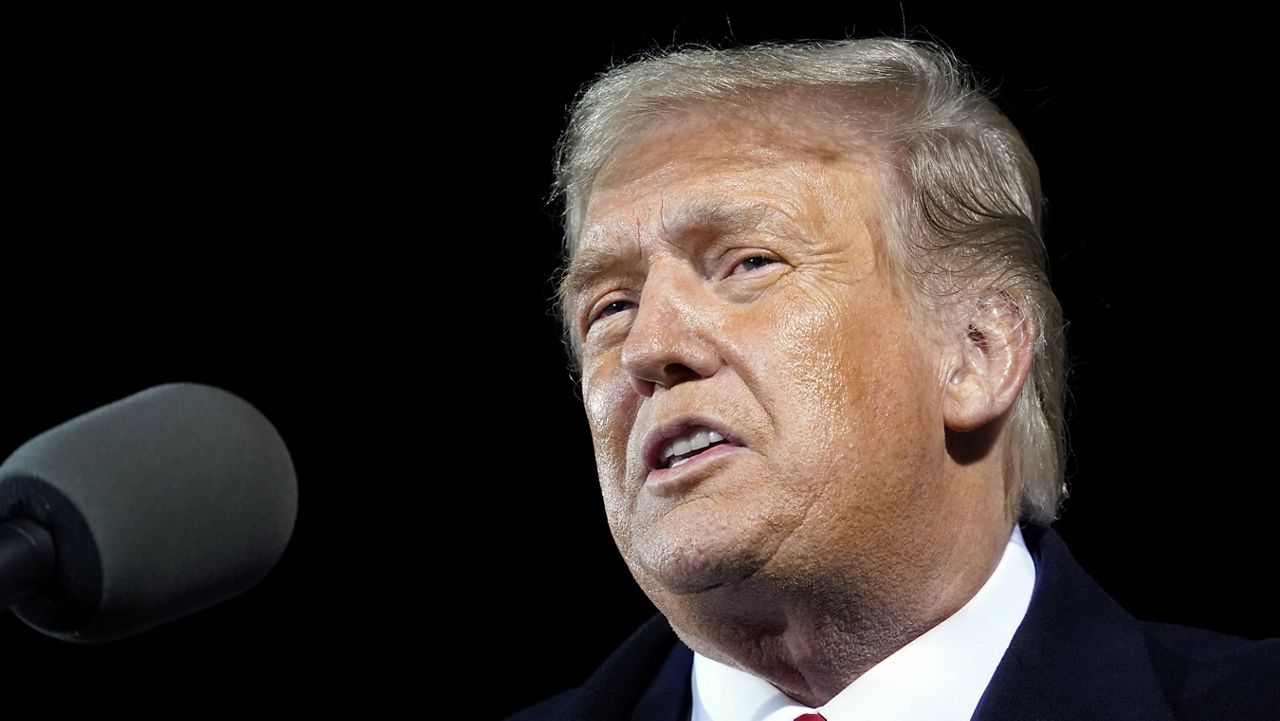WASHINGTON — President Donald Trump’s stunning announcement early Friday that he has contracted the coronavirus is sure to disrupt both his reelection campaign’s schedule and its messaging about the pandemic.
Trump, first lady Melania Trump, and top aide Hope Hicks all have been infected by the virus the president admittedly downplayed months ago and has insisted recently was becoming less of a problem in the U.S.
Trump has flouted public health guidelines by holding packed rallies — some indoors — and has sent mixed messages about the importance of wearing face masks. He’s mocked his opponent, Joe Biden, for his cautious approach of limiting his campaign appearances, keeping his in-person events small and wearing a mask.
“Every time you see him he’s got a mask,” Trump said at Tuesday night’s debate. “He could be speaking 200 feet away and he shows up with the biggest mask I’ve ever seen.”
Trump, in part because of his handling of the pandemic that has killed more than 207,000 Americans, is trailing Biden in virtually every nationwide poll as well as in some key battleground states. The president is also struggling in states that were red four years ago, such as Georgia and Iowa.
With just 32 days to go until Election Day, Trump, even if his case is mild or asymptomatic, now must remain isolated for a number of days. That likely means one or both of the remaining debates with Biden must be canceled or drastically changed — the next one is scheduled for Oct. 15. And it means Trump will have to cancel fundraisers and the massive rallies that he relishes.
Meanwhile, Biden is stepping up his efforts, with his campaign announcing Thursday it will launch door-to-door canvassing in key states.
If Trump becomes seriously ill, it could knock him out of the public eye through Nov. 3.
“Trump is now in the position of becoming exhibit No. 1 for the failure of his leadership on coronavirus, and he runs the risk that his supporters will feel misled by his dismissiveness of the virus and the need for precautions,” Geoff Garin, a Democratic pollster, told The New York Times.
Whether he’s on the trail campaigning or doing it from the White House, Trump now faces a bigger challenge of convincing Americans they shouldn’t fret about COVID-19 and that states should reopen businesses and schools.
In fact, just hours before announcing his diagnosis, he told a dinner audience in a prerecorded video that the “end of the pandemic is in sight” despite the rising number of new cases.
“Even if you assume the best health outcome for the president and first lady, he’ll still be facing a massive political problem because his own exposure undermines the primary argument he has been making about COVID-19 for the last several months,” Dan Schnur, a past adviser to many Republican leaders, told the Los Angeles Times.
Rob Stutzman, a former adviser to California Gov. Arnold Schwarzenegger, told the LA Times that the severity of Trump’s case will be key. If the president comes through it fine, “I could see that emboldening his base and himself,” he said. But if Trump is more seriously ill, “there is an irony to this that it will hurt Trump’s reelection chances, if not seal his fate.”



